
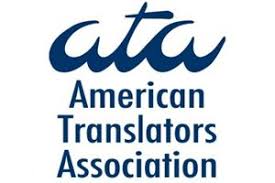
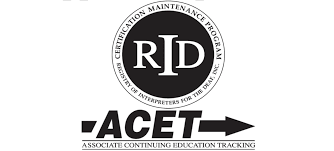

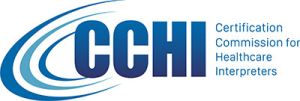
* Sign language interpreters requiring RID credit, must CLICK HERE to complete PINRA form BEFORE taking any activity.
| Title | Description | ATA | CCHI / CEAP | NBCMI / IMIA | RID * | WA-DSHS | Length | Cost |
|---|---|---|---|---|---|---|---|---|
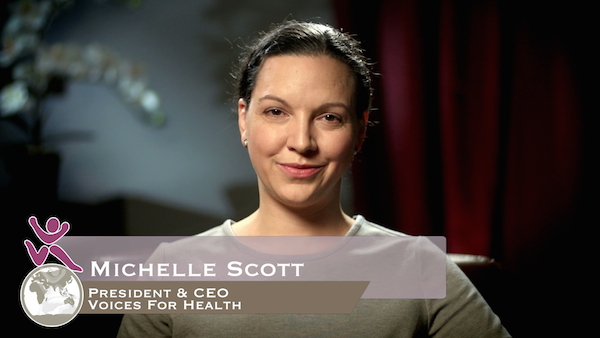 Moving Toward a More Professional Interpreting Industry
Moving Toward a More Professional Interpreting Industry
|
Michelle Scott, a Registered Nurse and interpreter trainer, discusses ways in which the medical interpreting profession can “catch up” with other healthcare professions. | n/a | 0.500 | n/a | 0.050 PS | n/a | 35 minutes | $7.00 |
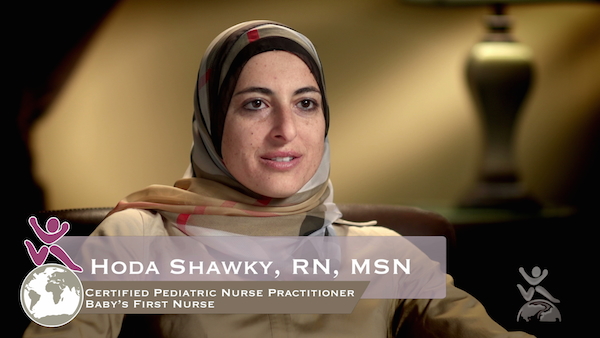 Pediatrics: Interpreting in Outpatient Settings
Pediatrics: Interpreting in Outpatient Settings
|
Across the age spectrum, from infants to teens, nurse practitioner Hoda Shawky discusses her communication strategies with patients and parents. Immunizations and common pediatric health problems are reviewed. | n/a | 1.250 | 0.125 | 0.125 PS | n/a | ||
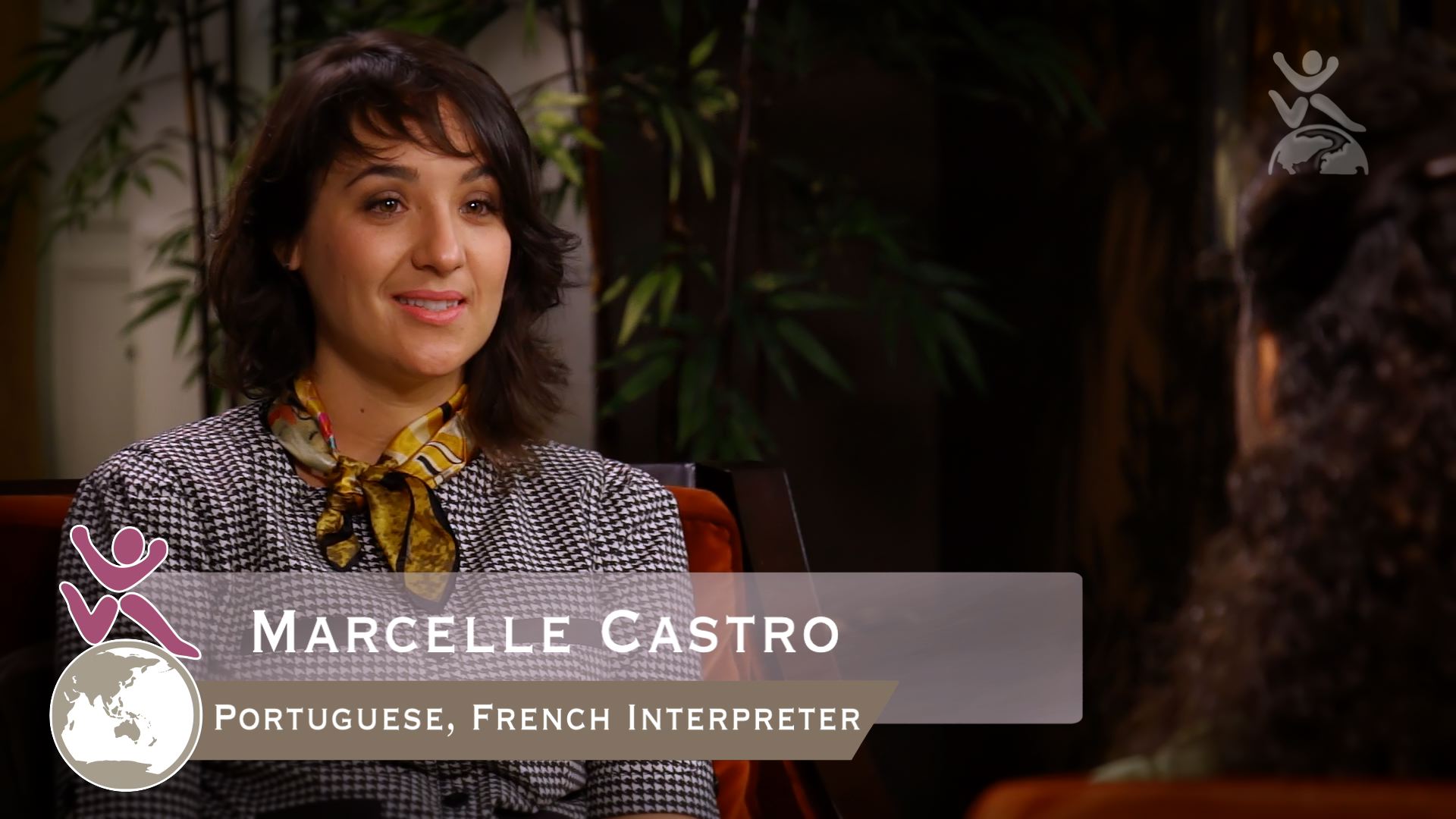 Interpreter Training Using Technology for Distance Learning
Interpreter Training Using Technology for Distance Learning
|
Originally a medical conference interpreter in Brazil, trainer Marcelle Castro describes her academic research about using technology to train interpreters, often internationally. Her experience is applicable to the field of medical interpreter training, as she describes considerations for learning styles, trainer adaptations and various resources (software, hardware and web based). | 1.000 | n/a | n/a | 0.075 GS | n/a | ||
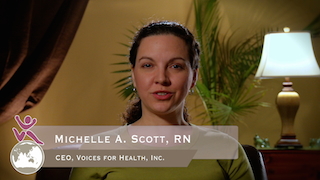 Facilitating Communication for Medical Histories
Facilitating Communication for Medical Histories
|
Interpreters can improve facilitation of communication for medical histories by understanding providers’ goals, communication styles, and different types of histories. Concepts presented by Michelle Scott, RN include the S.O.A.P. process, pain assessment, the 5 components of a medical history, communication techniques and styles, and patient reactions. | 1.000 | 0.500 | 0.050 | 0.050 PS | n/a | ||
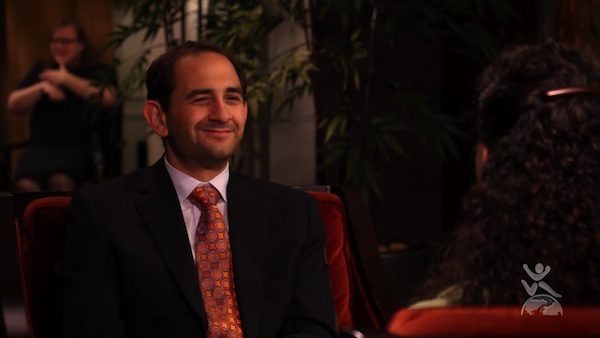 Advocacy and Accommodation for Deaf and Hard of Hearing Patients
Advocacy and Accommodation for Deaf and Hard of Hearing Patients
|
This interview with Shane Feldman, RID Executive Director, explores topics related to providing adequate healthcare services to Deaf patients, including an explanation ASL certification and a comparison of live versus video remote interpreters. | 1.000 | 1.000 | n/a | 0.100 PS | n/a | ||
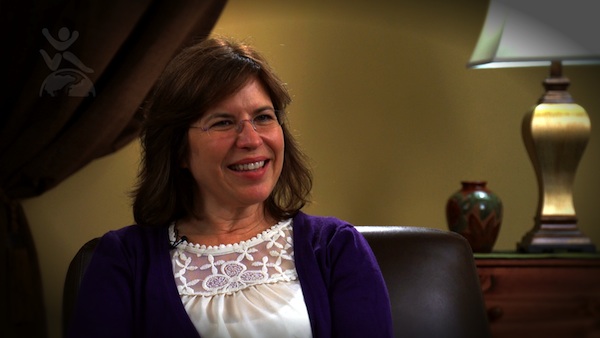 Nutrition Counseling: Interpreting for Dietitians
Nutrition Counseling: Interpreting for Dietitians
|
Registered Dietician Debra Hook explains special considerations for communicating with patients when providing nutrition counseling in outpatient settings. Particular attention is given to the culture brokering role of the medical interpreter with regard to foods and their preparation. The corresponding online "Nutrition" medical glossary contains 110 terms. | 1.000 | 0.750 | 0.075 | 0.100 PS | n/a | ||
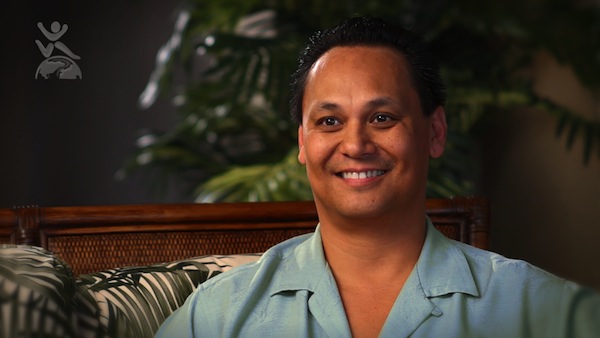 Interpreting in Emergency Department Settings
Interpreting in Emergency Department Settings
|
In this interview, Registered Nurse Ron Coronado describes the emergency department setting from triage to discharge. Practical tips for medical interpreters are provided for good communication, preparation, and managing dilemmas. | 1.000 | 1.000 | 0.100 | 0.100 PS | n/a | ||
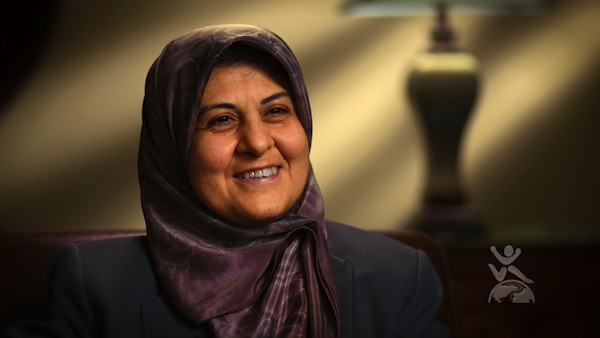 Interpreting in Primary Care Settings for Internal Medicine
Interpreting in Primary Care Settings for Internal Medicine
|
In this interview, Dr. Maryam Rahimi describes the role of an internal medicine physician, common chronic conditions encountered in outpatient clinical settings (diabetes, hypertension and heart disease) and practical tips for interpreters. | 1.000 | 0.750 | 0.075 | 0.100 PS | n/a | ||
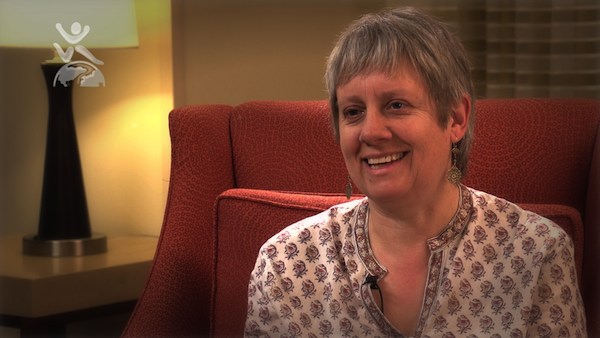 Health Disparities & Language Access in the United Kingdom
Health Disparities & Language Access in the United Kingdom
|
This interview with Lynne Carter, Head of Equality and Diversity at NHS Bradford and Airedale, provides an introduction to health disparities in the United Kingdom, as well as strategies to address language accommodation, allowing the audience to compare opportunities within the U.S. healthcare system. | 1.000 | n/a | n/a | 0.075 PS | n/a | ||
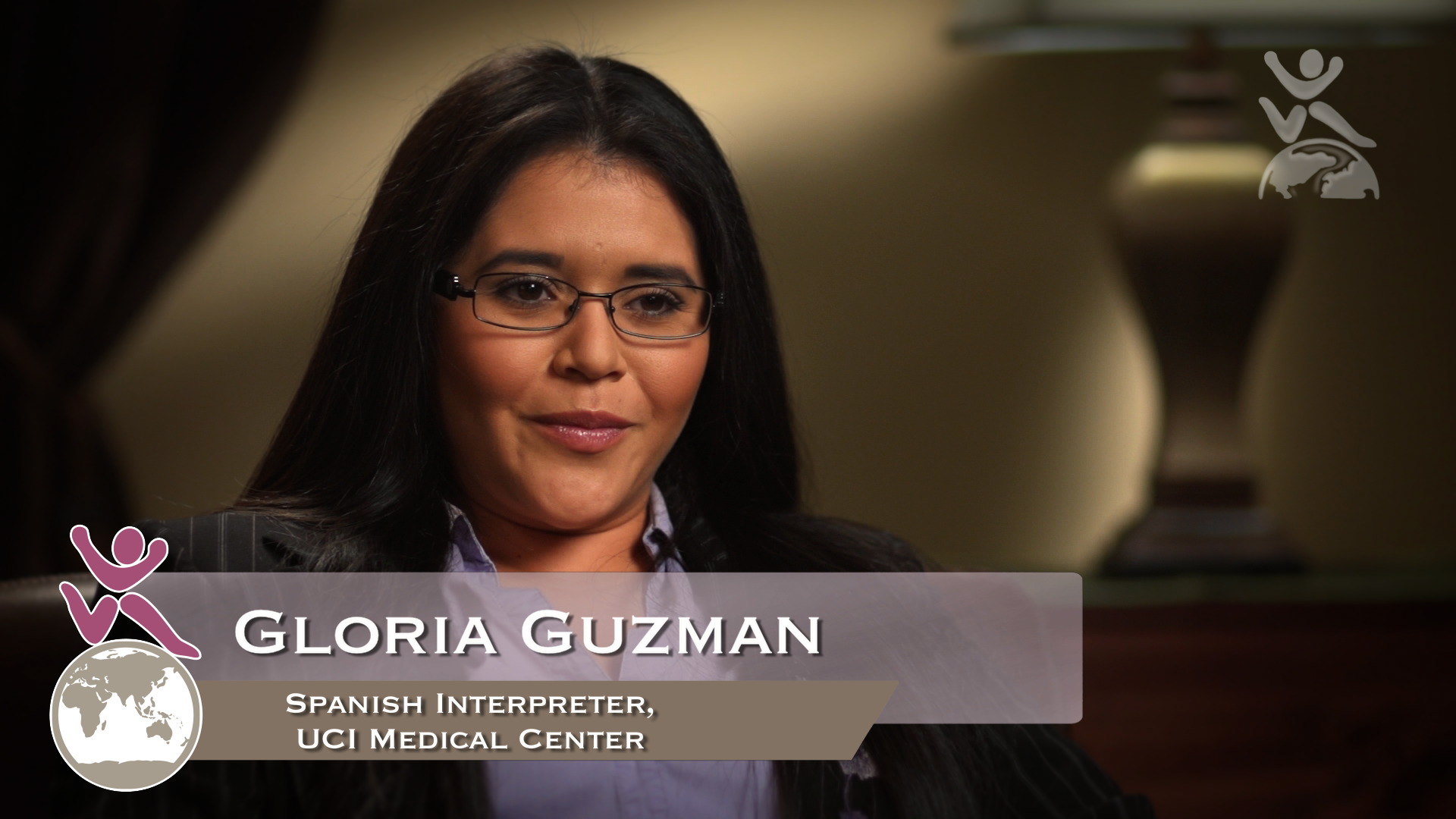 Problem Solving for Spanish Interpreters
Problem Solving for Spanish Interpreters
|
Gloria Guzman, WA-DSHS certified medical interpreter, shares personal experiences as a professional medical interpreter to highlight cultural and linguistic dilemmas that are common among Spanish interpreters. | 1.000 | 1.000 | 0.100 | 0.100 PS | n/a | ||
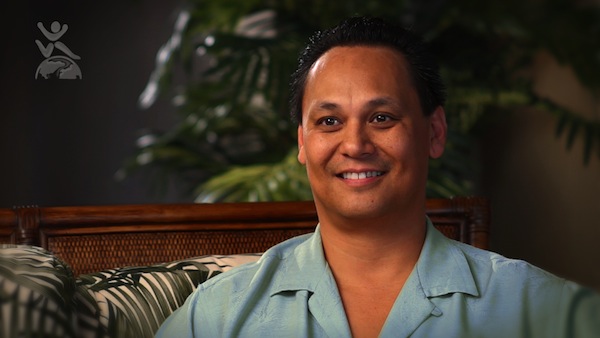 Sexual History Taking and Sex Education: Guidelines for Medical Interpreters
Sexual History Taking and Sex Education: Guidelines for Medical Interpreters
|
Ron Coronado, RN discusses the healthcare provider's approach to taking sexual histories and providing sex education. Sexually transmitted diseases, social stigma and interpreting ethics are addressed. The corresponding glossary contains over 60 medical terms. | 1.000 | 0.750 | 0.075 | 0.100 PS | n/a | ||
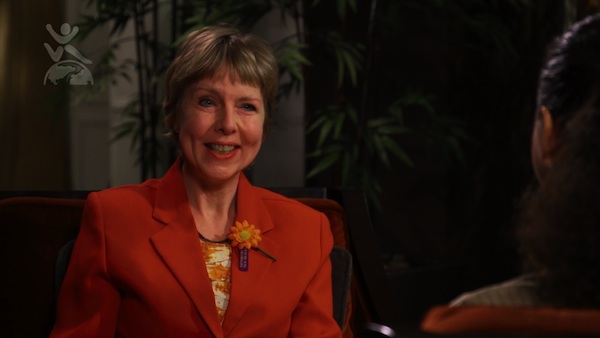 Medical Interpreting for Refugees: Research from New Zealand
Medical Interpreting for Refugees: Research from New Zealand
|
As a professional nurse and medical interpreter, author Ineke Crezee describes results of research exploring vicarious trauma experienced by interpreters working with refugees. Concepts are applicable to interpreters working with refugees in any country. | 1.000 | 1.000 | n/a | 0.100 PS | n/a | ||
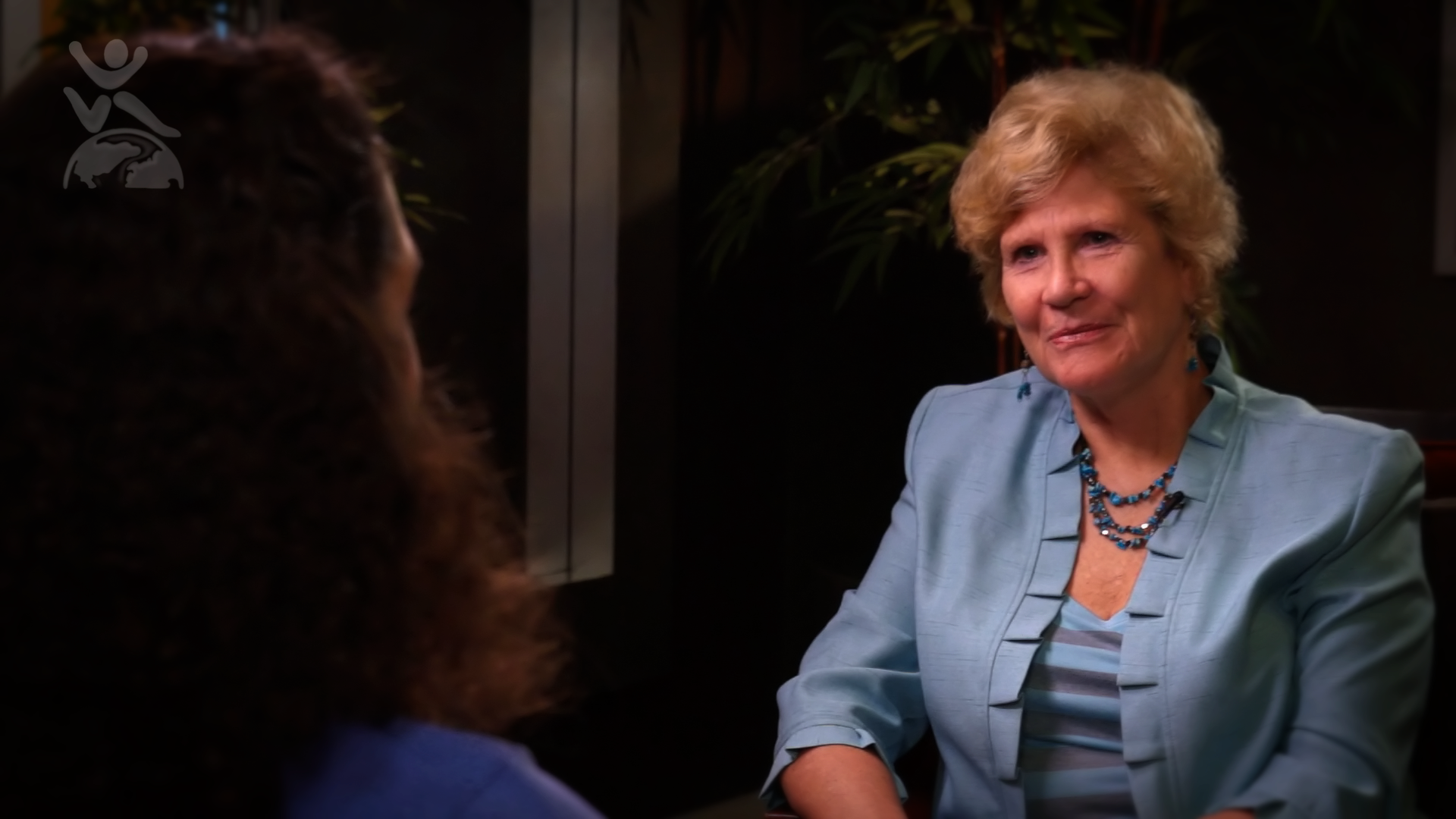 Interpreting for Medical Conferences & Presentations
Interpreting for Medical Conferences & Presentations
|
Sara Brown addresses various aspects of managing assignments, including content and terminology preparation, team etiquette, ethical considerations and coping with difficult topics. The insight is relevant not only to conference interpreting, but to community assignments such as health education classes, insurance benefits presentations, school meetings and more. | 1.000 | n/a | n/a | n/a | n/a | 44 minutes | $11.00 |
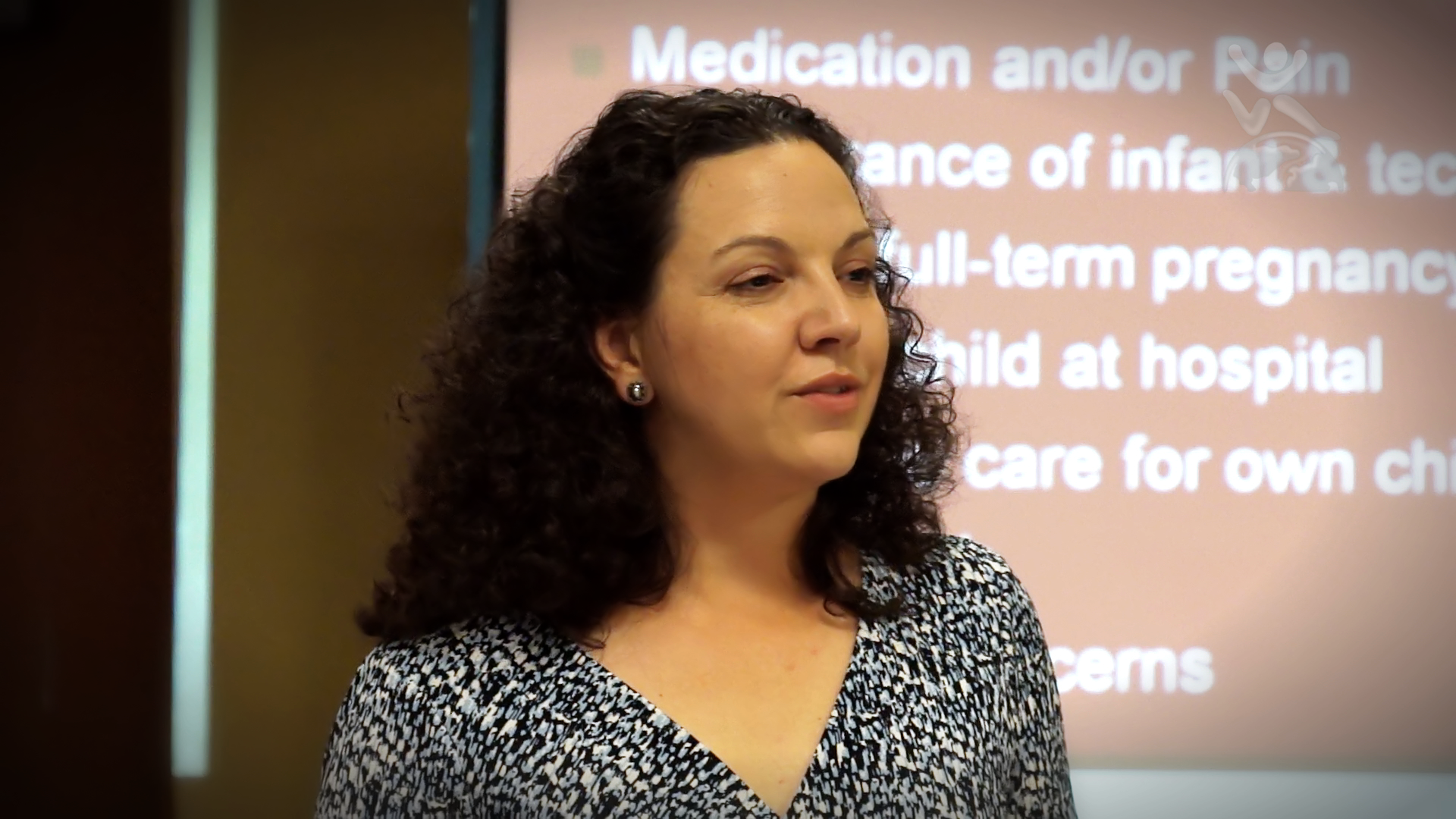 Fragile Moments: Interpreting for Families in the NICU
Fragile Moments: Interpreting for Families in the NICU
|
This presentation by Michelle Scott, RN explores the psychosocial dynamics of interpreting for families in the neonatal intensive care unit (NICU). Terminology related to health professions and acronyms is covered. | 1.000 | 0.750 | 0.075 | 0.100 GS | n/a | ||
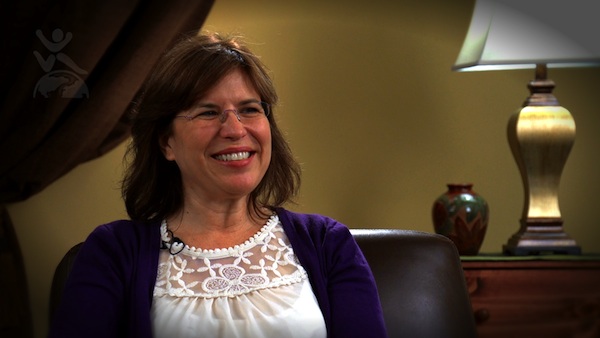 Diabetes Nutrition Education: An Introduction for Interpreters
Diabetes Nutrition Education: An Introduction for Interpreters
|
In this interview, Registered Dietician Debra Hook explains special considerations for communicating with patients when providing nutrition education to diabetics in inpatient and outpatient settings. The corresponding online "Diabetes" glossary has 109 valuable terms! | 1.000 | 0.750 | 0.075 | 0.075 PS | n/a | ||
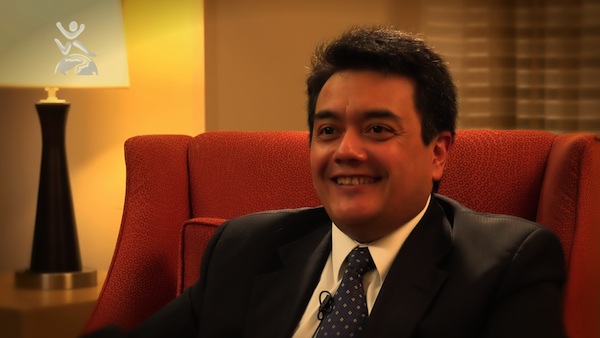 Medical Interpreters as Patient Navigators: Exploring the Intersection of Two Roles
Medical Interpreters as Patient Navigators: Exploring the Intersection of Two Roles
|
This video with physician and researcher Juan Gutierrez-Sanin explores an emerging, research-based model for patient navigators, by training medical interpreters using a specialized curriculum. | 1.000 | 1.000 | n/a | 0.100 PS | n/a | ||
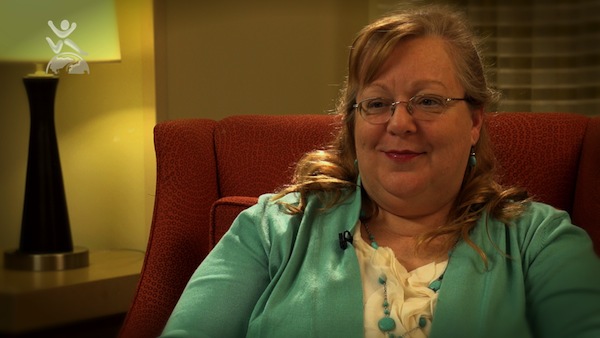 Interpreting for Refugees in Social Service Encounters
Interpreting for Refugees in Social Service Encounters
|
From refugee camps to beyond resettlement, this interview with social worker Kathleen To explores psychosocial dynamics of refugees and techniques to assist interpreters in facilitating communication for social service encounters. | 1.000 | 1.000 | 0.125 | 0.100 PS | n/a | ||
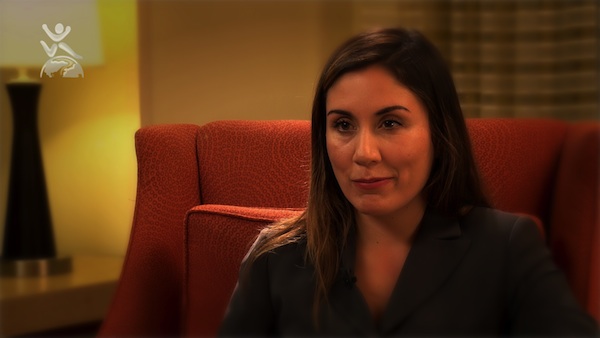 Health Disparities and Language Access in the U.S.
Health Disparities and Language Access in the U.S.
|
This video with researcher Maria Moreno, MPH explores ways in which health disparities in the United States can be minimized through adequate language accommodation mandates and practices. | 1.000 | 0.750 | n/a | 0.100 PS | n/a | ||
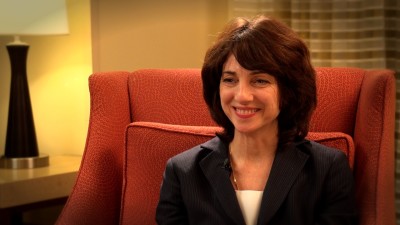 The Willie Ramirez Case Study: Failed Communication and Tragic Results
The Willie Ramirez Case Study: Failed Communication and Tragic Results
|
Through a conversation about the historic Willie Ramirez malpractice case study with researcher and author Gail Price-Wise, interpreters and healthcare providers can learn about ways to improve communication and cultural competency. | 1.000 | 0.750 | n/a | 0.075 PS | n/a | ||
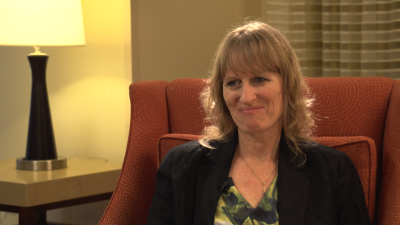 Technology in the Medical Interpreting Industry
Technology in the Medical Interpreting Industry
|
This interview with professor and interpreter Katharine Allen, Co-President of InterpretAmerica, provides an overview of technology that is currently available in the medical interpreting industry for service provision and assignment scheduling, including suggestions for best practices. | 1.000 | n/a | n/a | 0.075 GS | n/a | ||
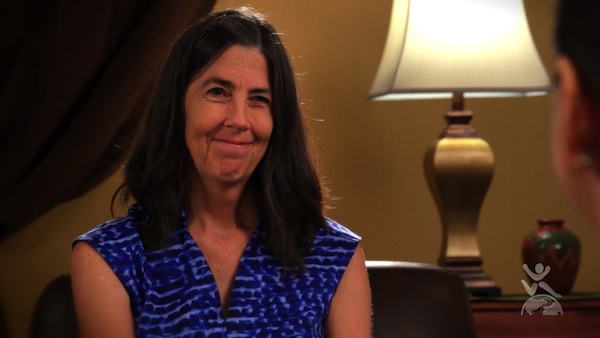 Interpreting for Trauma Survivors
Interpreting for Trauma Survivors
|
During this interview with physician Lucia Roncalli, normal physiological responses to psychological trauma are explained within the context of communicating with patients during a medical encounter. An actual patient/provider scenario allows the viewer to see therapy in action, while also providing an opportunity to practice interpreting the encounter. | 1.000 | 1.000 | 0.100 | 0.100 PS | n/a | ||
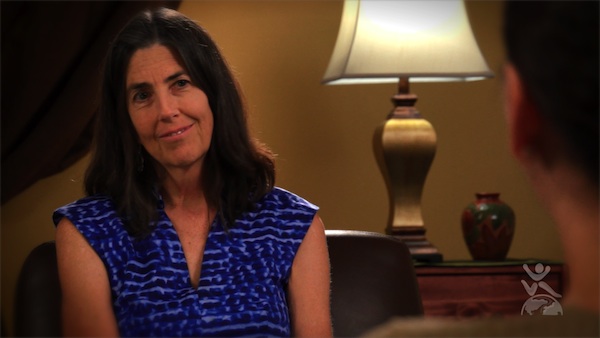 Interpreting for Medical Exams for Asylum Seekers
Interpreting for Medical Exams for Asylum Seekers
|
Physician Lucia Roncalli describes the delicate nature of medical exams for asylum seekers and the ways in which the interpreter can best support communication. Vicarious trauma, both during and following the encounter, and self-care are discussed. The corresponding glossary contains 25 terms. | n/a | 1.000 | 0.100 | 0.100 PS | n/a | ||
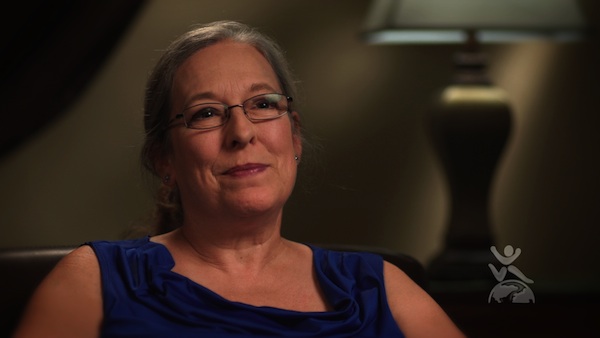 Interpreting for Physical Therapy Encounters - Part 1 (Theory)
Interpreting for Physical Therapy Encounters - Part 1 (Theory)
|
This interview with physical therapist Mary Sondag covers the role of the physical therapist, dynamics of communication with the patient and family members, and practical tips for interpreters. | 1.000 | 0.750 | 0.075 | 0.100 PS | n/a | ||
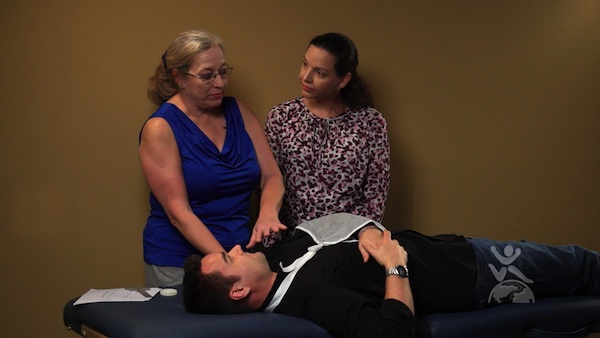 Interpreting for Physical Therapy Encounters - Part 2 (Demonstration)
Interpreting for Physical Therapy Encounters - Part 2 (Demonstration)
|
This demonstration with physical therapist Mary Sondag provides scenarios for common rehabilitation exercises and assistive devices. The guest talks to the "patient" as she would in a true-to-life encounter, allowing the viewer to practice interpreting. | 1.000 | 0.250 | n/a | 0.050 PS | n/a | ||
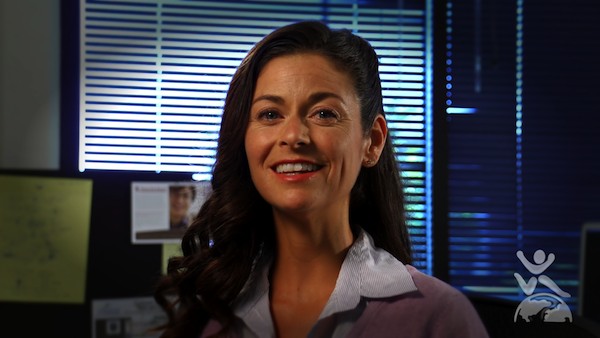 Hip Opener (FREE)
Hip Opener (FREE)
|
In this exercise you will learn how to open your hips after a prolonged period of sitting. | n/a | n/a | n/a | n/a | n/a | ||
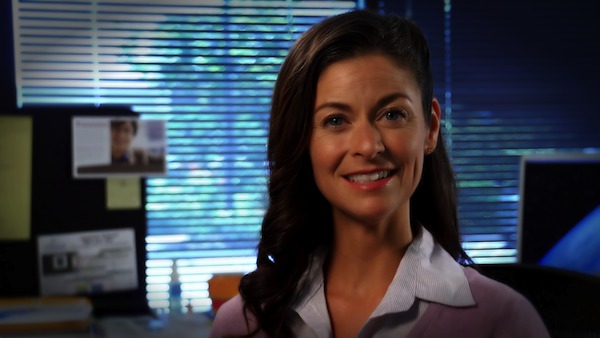 6 Movements of the Spine (FREE)
6 Movements of the Spine (FREE)
|
This exercise shows you how to safely stretch your spine in six different directions while sitting at your desk. | n/a | n/a | n/a | n/a | n/a | 2 minutes | |
 Breathing Technique (FREE)
Breathing Technique (FREE)
|
In this exercise you will learn a simple breathing technique to help you release stress. | n/a | n/a | n/a | n/a | n/a | ||
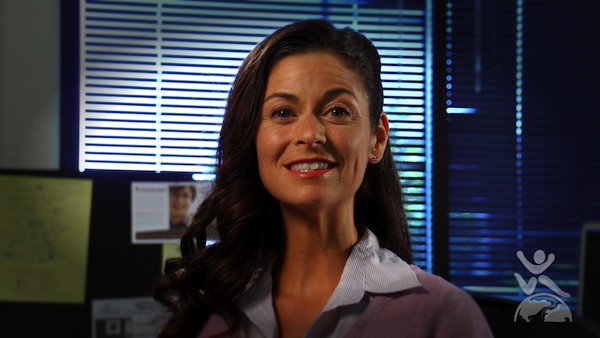 Shoulder and Neck Rolls (FREE)
Shoulder and Neck Rolls (FREE)
|
In this exercise you will learn a simple stretch for you neck and shoulders. | n/a | n/a | n/a | n/a | n/a | ||
 Maintaining a Neutral Spine in Your Seated Posture (FREE)
Maintaining a Neutral Spine in Your Seated Posture (FREE)
|
In this exercise you will learn a simple technique to keep your posture from becoming slumped, in order to maintain a nice, neutral spine. | n/a | n/a | n/a | n/a | n/a | ||
 Spinal Twist (FREE)
Spinal Twist (FREE)
|
In this exercise you will learn how to perform a safe spinal twist. | n/a | n/a | n/a | n/a | n/a | ||
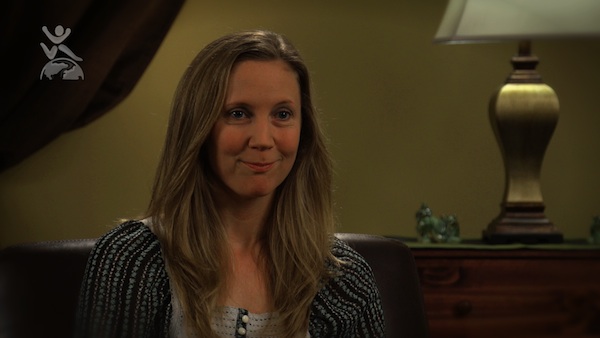 Interpreting for Domestic Violence Encounters
Interpreting for Domestic Violence Encounters
|
This interview with clinical psychologist Adriane Nada provides an overview of domestic violence services and guidelines for interpreters assigned to appointments at counseling sessions or crisis shelters. | 1.000 | 1.000 | 0.100 | 0.100 PS | n/a | ||
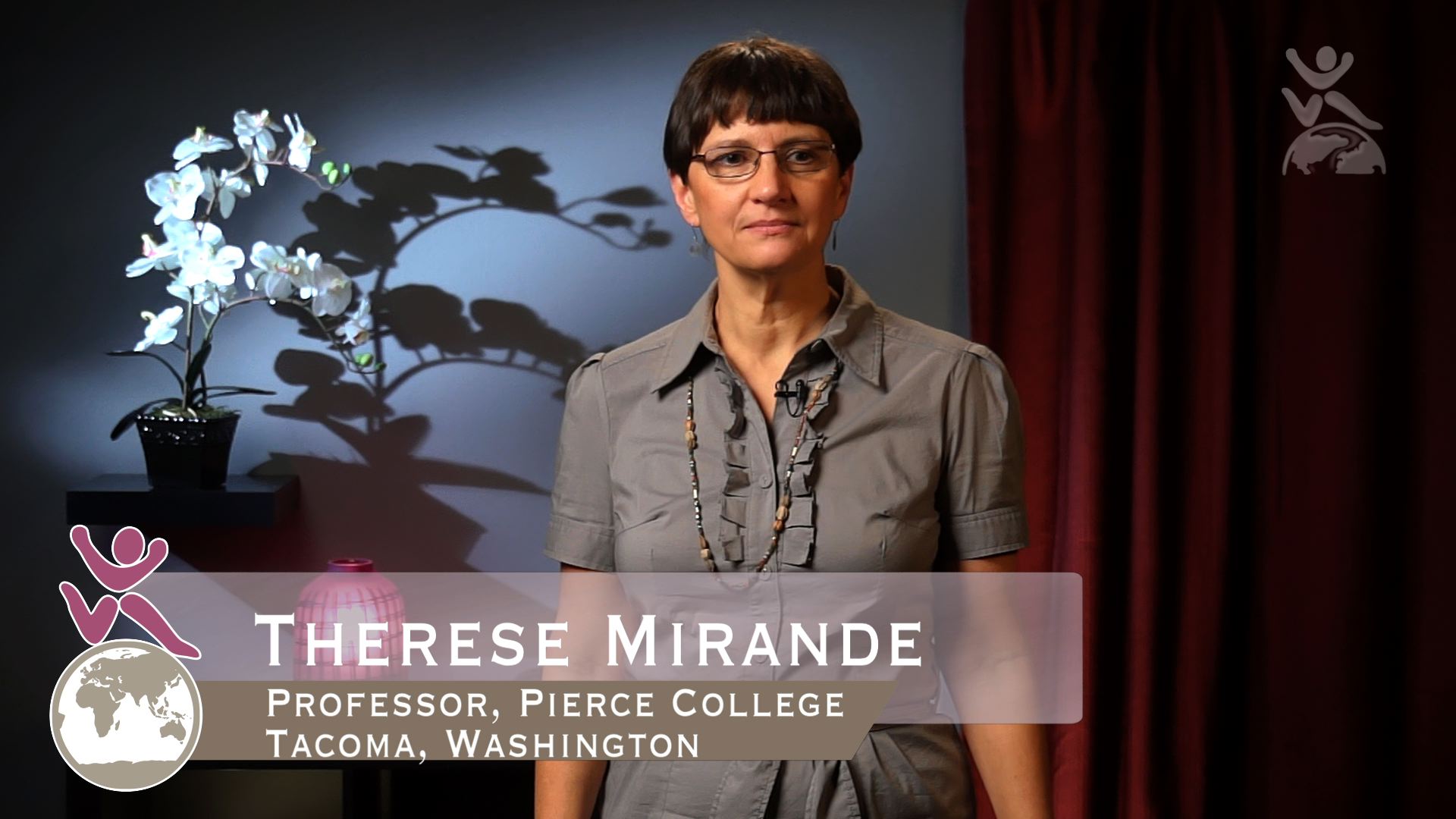 Advanced Ethics—Part 1: Interpreter Codes of Ethics & Ethical Decision Making
Advanced Ethics—Part 1: Interpreter Codes of Ethics & Ethical Decision Making
|
This video is the first in a 3-part “Advanced Ethics” series. Therese Mirande explores the 5 qualities of an ethical interpreter and explores the 5 steps for ethical decision-making. | n/a | 0.500 | 0.050 | 0.050 PS | n/a | 37 minutes | $7.00 |
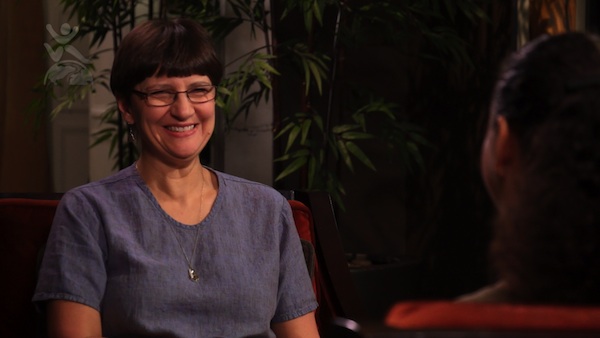 Professionalism in Medical Interpreting
Professionalism in Medical Interpreting
|
Interpreting Professor Therese Mirande reviews the requirements of professional medical interpreting, including training and adherence to a professional code of ethics, and guides interpreters in using critical thinking to put theory about the four traditional roles into practice. | n/a | 0.500 | n/a | n/a PS | n/a | ||
 Advanced Ethics—Part 2: Self-Awareness & Cultural Identity
Advanced Ethics—Part 2: Self-Awareness & Cultural Identity
|
This video is the second in a 3-part “Advanced Ethics” series. Therese Mirande goes beyond basics to examine aspects of self-awareness and cultural identity that form the basis for ethical decision-making. | n/a | 0.500 | 0.050 | 0.050 PS | n/a | 25 minutes | $7.00 |
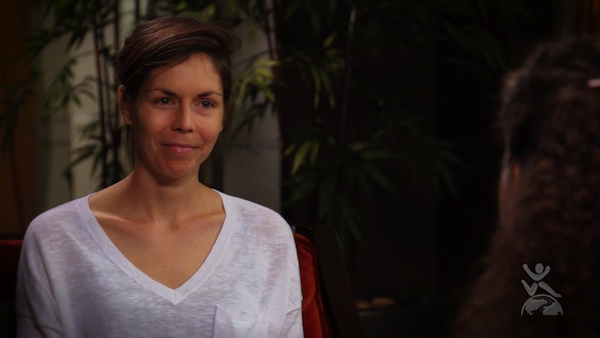 A Focus on Clarifier and Culture Broker Roles in Medical Interpreting
A Focus on Clarifier and Culture Broker Roles in Medical Interpreting
|
This interview with Laura Holcomb, CMI provides examples and guidance about how to put the "clarifier" and "culture broker" roles into practice when working with patients and providers. | 1.000 | 0.750 | n/a | 0.100 PS | n/a | 47 minutes | $11.00 |
 Advanced Ethics—Part 3: Ethical Situations to Consider
Advanced Ethics—Part 3: Ethical Situations to Consider
|
This video is the third in a 3-part “Advanced Ethics” series. Therese Mirande goes beyond basics to present 5 scenarios with ethical dilemmas for participants to consider. She walks participants through the 5 steps of the decision-making process for each scenario. | n/a | 0.750 | 0.075 | 0.075 PS | n/a | ||
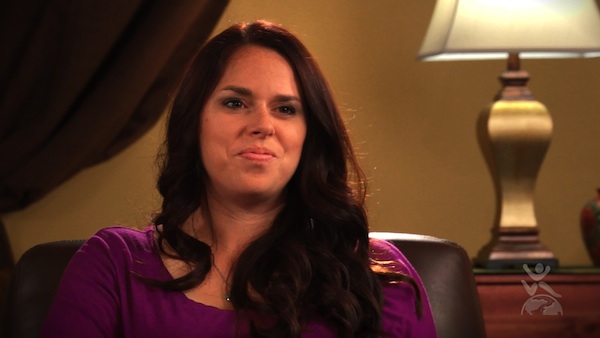 Interpreting for Pediatric Speech & Language Therapy
Interpreting for Pediatric Speech & Language Therapy
|
This interview with Rochelle Russell, Registered Speech Therapist, explores the dynamics of communicating with children in speech and language therapy encounters, with particular focus on the challenges that arise when working with different languages and cultures. | 1.000 | 0.750 | 0.075 | 0.075 PS | n/a | ||
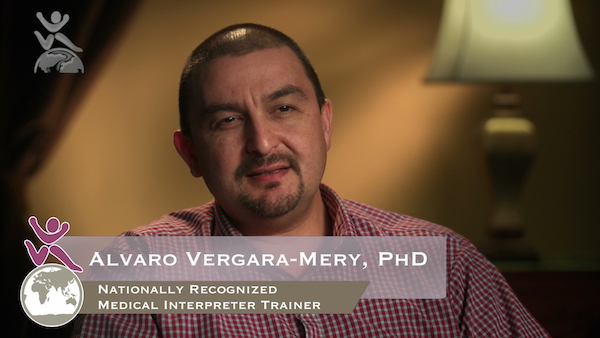 Interpreting for Children & Families in a Hospital Setting
Interpreting for Children & Families in a Hospital Setting
|
1.000 | 0.750 | n/a | 0.100 PS | n/a | 68 minutes | $19.00 | |
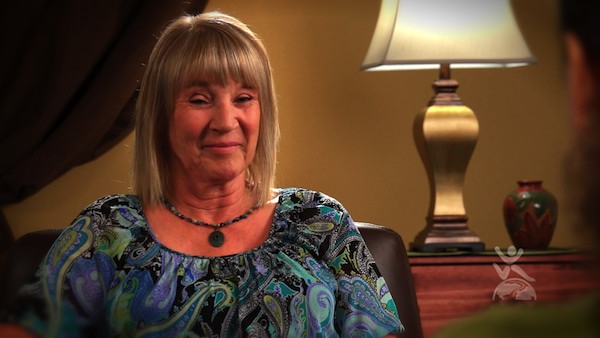 Dynamics of Communication in Mental Health - Part 1
Dynamics of Communication in Mental Health - Part 1
|
This first part of the interview with Susan Potts, Licensed Clinical Psychologist, covers the goals of counseling in an outpatient setting, as well as ways that interpreters can prepare for facilitating communication in emotionally-charged encounters. The corresponding medical glossary contains over 30 mental health terms. | 1.000 | 0.750 | 0.075 | 0.075 PS | n/a | ||
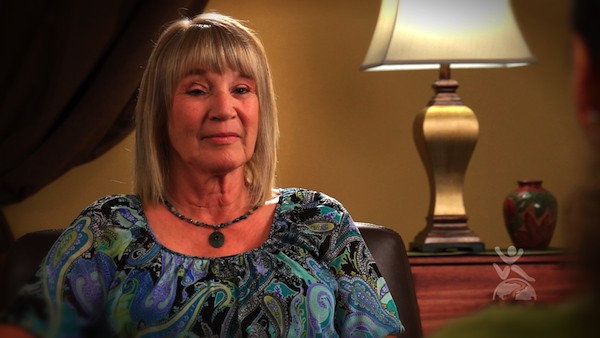 Dynamics of Communication in Mental Health - Part 2
Dynamics of Communication in Mental Health - Part 2
|
This second part of the interview with licensed clinical psychologist Susan Potts covers the goals of counseling in an outpatient setting, as well as ways that interpreters can prepare for facilitating communication in emotionally-charged encounters. The corresponding glossary contains over 30 mental health terms. | 1.000 | 1.000 | 0.100 | 0.100 PS | n/a | ||
| Title | Description | ATA | CHIA/CEAP | NBCMI/IMIA | RID | WA-DSHS |